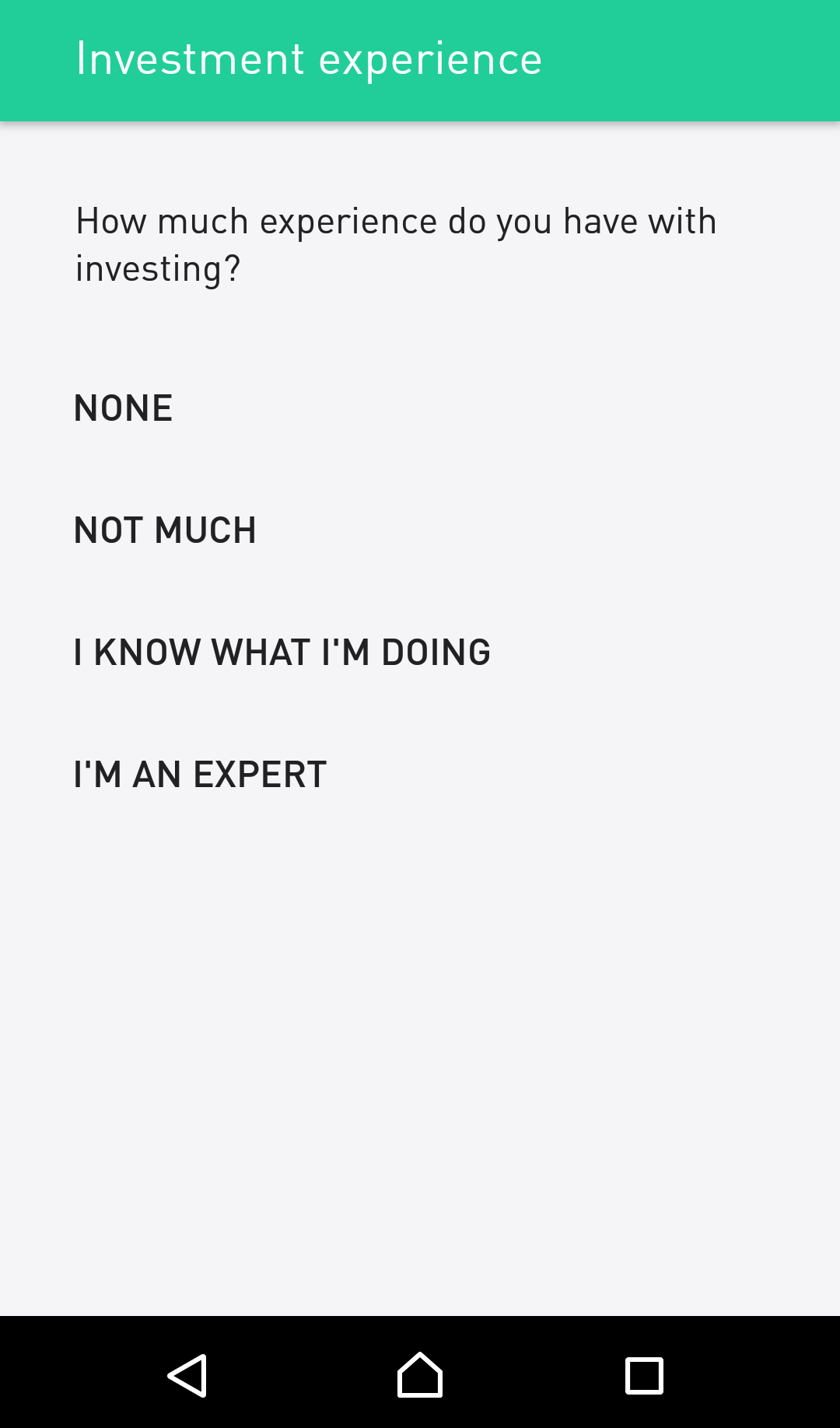
Asset allocation is the process of diversifying your investments across different assets. It is a personal decision. It depends on how much time you have available. The risk you are willing to take will depend on the amount you invest and your goals. You may feel more comfortable taking on higher risk if you have a long retirement plan. If your time horizon is less than that, you might want to take less risk. Regardless of your personal situation, there are many different methods to maximize your investment portfolio.
Diversification
Individual investments might prove to be profitable in the short-term. However, you may be better off spreading money across different types of investments like stocks or bonds. Using asset allocation allows you to achieve the ideal level of risk for your specific financial goals while still providing a reasonable rate of return. If your short-term goals include accumulating large amounts of cash, then you should focus your assets on bonds. You may need to have more liquidity if you are looking for long-term financial goals. Stocks can be too volatile.

Risk tolerance
Your investment goals and risk tolerance should be reflected in a good asset allocation strategy. Your ability to bear large market declines. This differs from your risk capacity, which is a set amount you can afford to lose. You may feel comfortable with a portfolio of 100% stocks. But, it's possible to be uncomfortable with 100% cash which can be highly volatile. You must be able to accept risk in order build wealth and avoid financial hardships.
Time horizon
It is essential to establish a time frame for asset allocation. Your time frame will dictate the type of investment and how long it will be held. Many investors invest with an aggressive time horizon, but this is not the best approach for long-term planning. It's better if you focus on long-term objectives like retirement. This will allow your investments to be more risky.
Goals
Your goals are an important factor in asset allocation strategies. You could have several financial goals, such as building a retirement portfolio, buying a home or a yacht, paying for college, or planning to marry. Your risk tolerance and time frame could also influence your goals. A conservative portfolio with lower risks would be your best choice if you want to save capital.

Categories of investment
The risk and return characteristics of each major asset category are different. Cash is considered the safest of all assets but has the lowest rate of return. Avoiding inflation is the best way to avoid cash. These are some common cash types. The SEC does not recommend investing in cash. However, the SEC is not recommending that cash be invested in.
FAQ
What is a mutual fund?
Mutual funds are pools that hold money and invest in securities. They offer diversification by allowing all types and investments to be included in the pool. This reduces the risk.
Mutual funds are managed by professional managers who look after the fund's investment decisions. Some funds offer investors the ability to manage their own portfolios.
Because they are less complicated and more risky, mutual funds are preferred to individual stocks.
Are bonds tradable?
Yes they are. As shares, bonds can also be traded on exchanges. They have been for many years now.
They are different in that you can't buy bonds directly from the issuer. They must be purchased through a broker.
Because there are less intermediaries, buying bonds is easier. This also means that if you want to sell a bond, you must find someone willing to buy it from you.
There are many different types of bonds. Some pay interest at regular intervals while others do not.
Some pay quarterly, while others pay interest each year. These differences make it easy for bonds to be compared.
Bonds can be very useful for investing your money. If you put PS10,000 into a savings account, you'd earn 0.75% per year. The same amount could be invested in a 10-year government bonds to earn 12.5% interest each year.
You could get a higher return if you invested all these investments in a portfolio.
What are the benefits of stock ownership?
Stocks are less volatile than bonds. Stocks will lose a lot of value if a company goes bankrupt.
If a company grows, the share price will go up.
Companies often issue new stock to raise capital. Investors can then purchase more shares of the company.
To borrow money, companies use debt financing. This gives them access to cheap credit, which enables them to grow faster.
People will purchase a product that is good if it's a quality product. The stock will become more expensive as there is more demand.
As long as the company continues to produce products that people want, then the stock price should continue to increase.
How do you invest in the stock exchange?
You can buy or sell securities through brokers. A broker can sell or buy securities for you. Brokerage commissions are charged when you trade securities.
Banks are more likely to charge brokers higher fees than brokers. Banks often offer better rates because they don't make their money selling securities.
An account must be opened with a broker or bank if you plan to invest in stock.
If you hire a broker, they will inform you about the costs of buying or selling securities. This fee is based upon the size of each transaction.
You should ask your broker about:
-
To trade, you must first deposit a minimum amount
-
If you close your position prior to expiration, are there additional charges?
-
What happens to you if more than $5,000 is lost in one day
-
How long can you hold positions while not paying taxes?
-
How you can borrow against a portfolio
-
How you can transfer funds from one account to another
-
How long it takes to settle transactions
-
The best way for you to buy or trade securities
-
How to Avoid Fraud
-
How to get help when you need it
-
Can you stop trading at any point?
-
How to report trades to government
-
How often you will need to file reports at the SEC
-
Whether you need to keep records of transactions
-
What requirements are there to register with SEC
-
What is registration?
-
How does it affect me?
-
Who must be registered
-
When should I register?
What is a bond?
A bond agreement between two people where money is transferred to purchase goods or services. It is also known to be a contract.
A bond is normally written on paper and signed by both the parties. The document contains details such as the date, amount owed, interest rate, etc.
A bond is used to cover risks, such as when a business goes bust or someone makes a mistake.
Bonds are often combined with other types, such as mortgages. This means the borrower must repay the loan as well as any interest.
Bonds can also raise money to finance large projects like the building of bridges and roads or hospitals.
It becomes due once a bond matures. That means the owner of the bond gets paid back the principal sum plus any interest.
If a bond does not get paid back, then the lender loses its money.
Statistics
- "If all of your money's in one stock, you could potentially lose 50% of it overnight," Moore says. (nerdwallet.com)
- The S&P 500 has grown about 10.5% per year since its establishment in the 1920s. (investopedia.com)
- Even if you find talent for trading stocks, allocating more than 10% of your portfolio to an individual stock can expose your savings to too much volatility. (nerdwallet.com)
- For instance, an individual or entity that owns 100,000 shares of a company with one million outstanding shares would have a 10% ownership stake. (investopedia.com)
External Links
How To
How to open a trading account
To open a brokerage bank account, the first step is to register. There are many brokers on the market, all offering different services. Some charge fees while others do not. Etrade is the most well-known brokerage.
After opening your account, decide the type you want. These are the options you should choose:
-
Individual Retirement Accounts (IRAs).
-
Roth Individual Retirement Accounts
-
401(k)s
-
403(b)s
-
SIMPLE IRAs
-
SEP IRAs
-
SIMPLE 401(k).
Each option offers different advantages. IRA accounts have tax benefits but require more paperwork. Roth IRAs give investors the ability to deduct contributions from taxable income, but they cannot be used for withdrawals. SEP IRAs are similar to SIMPLE IRAs, except they can also be funded with employer matching dollars. SIMPLE IRAs have a simple setup and are easy to maintain. These IRAs allow employees to make pre-tax contributions and employers can match them.
The final step is to decide how much money you wish to invest. This is your initial deposit. Most brokers will offer you a range deposit options based on your return expectations. Based on your desired return, you could receive between $5,000 and $10,000. This range includes a conservative approach and a risky one.
After deciding on the type of account you want, you need to decide how much money you want to be invested. Each broker sets minimum amounts you can invest. These minimums vary between brokers, so check with each one to determine their minimums.
After you've decided the type and amount of money that you want to put into an account, you will need to find a broker. Before you choose a broker, consider the following:
-
Fees - Make sure that the fee structure is transparent and reasonable. Many brokers will offer trades for free or rebates in order to hide their fees. However, many brokers increase their fees after your first trade. Be cautious of brokers who try to scam you into paying additional fees.
-
Customer service – You want customer service representatives who know their products well and can quickly answer your questions.
-
Security - Look for a broker who offers security features like multi-signature technology or two-factor authentication.
-
Mobile apps: Check to see whether the broker offers mobile applications that allow you access your portfolio via your smartphone.
-
Social media presence - Check to see if they have a active social media account. It might be time for them to leave if they don't.
-
Technology - Does this broker use the most cutting-edge technology available? Is the trading platform user-friendly? Is there any difficulty using the trading platform?
Once you've selected a broker, you must sign up for an account. While some brokers offer free trial, others will charge a small fee. Once you sign up, confirm your email address, telephone number, and password. Then, you'll be asked to provide personal information such as your name, date of birth, and social security number. You will then need to prove your identity.
Once verified, your new brokerage firm will begin sending you emails. These emails contain important information about you account and it is important that you carefully read them. The emails will tell you which assets you are allowed to buy or sell, the types and associated fees. Keep track of any promotions your broker offers. These could include referral bonuses, contests, or even free trades!
Next, open an online account. Opening an online account is usually done through a third-party website like TradeStation or Interactive Brokers. Both websites are great resources for beginners. When you open an account, you will usually need to provide your full address, telephone number, email address, as well as other information. Once this information is submitted, you'll receive an activation code. This code will allow you to log in to your account and complete the process.
You can now start investing once you have opened an account!